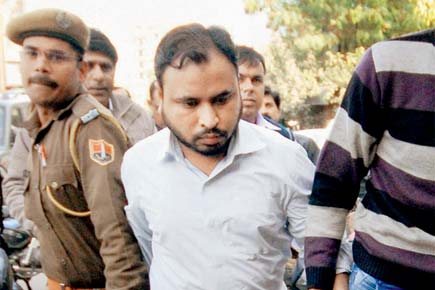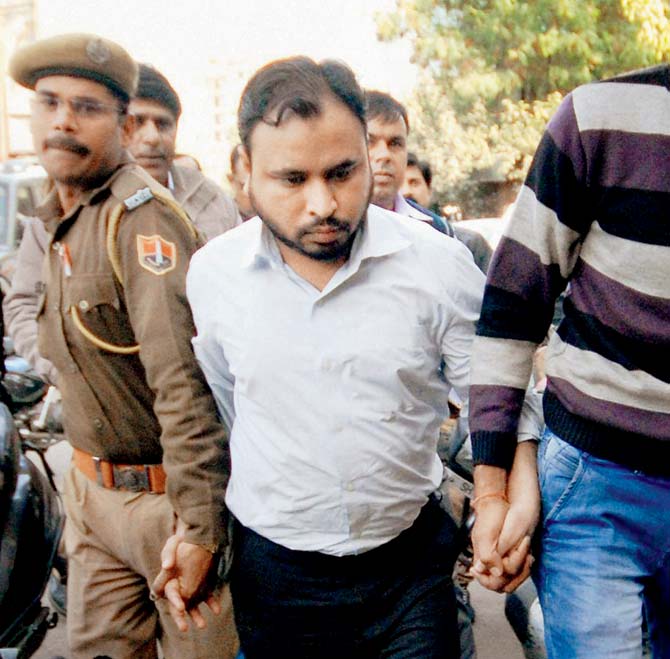While the terror outfit has spread its operations, India is clearly not a priority target for it

 There is something farcical about the Indian campaign against the Islamic State. On one hand, you have the Union Minister of Defence Manohar Parrikar declaring India’s intent to take on the IS, provided there is a UN resolution authorising the move. On the other, you have a bunch of assorted Hindutva figures like Pramod Mutalik of the Sri Ram Sene and Ramesh Shinde of the Hindu Janjagruti Samiti fighting their own private war against the IS. As for the police, their behaviour at times resembles that of Inspector Clouseau. They are chasing shadows all over the place because the fact of the matter is that the IS is not up to very much in this country.
There is something farcical about the Indian campaign against the Islamic State. On one hand, you have the Union Minister of Defence Manohar Parrikar declaring India’s intent to take on the IS, provided there is a UN resolution authorising the move. On the other, you have a bunch of assorted Hindutva figures like Pramod Mutalik of the Sri Ram Sene and Ramesh Shinde of the Hindu Janjagruti Samiti fighting their own private war against the IS. As for the police, their behaviour at times resembles that of Inspector Clouseau. They are chasing shadows all over the place because the fact of the matter is that the IS is not up to very much in this country.
ADVERTISEMENT

Suspected ISIS agent Mohammad Sirajuddin is escorted to a Jaipur court on Friday. Through him, the ATS tracked down a teenage girl in Pune who had plans to join the IS in Syria. Pic/PTI
So, where countries are bombing and strafing the IS, India’s attack on the entity remains mainly verbal. Which is all for the good. Speaking to a conclave of Directors General of Police last week, Prime Minister Narendra Modi spoke of the need to deal with the issue with sensitivity in a “flexible instructional framework” with local communities. This appeared to have been an important theme of the meeting of the Directors General of Police that was held in the Rann of Kutch with the attendance of the prime minister. Instead of speaking about the muscle needed to combat what remains an amorphous threat, the officials have spoken of the need to rope in clerics and community leaders and seek their assistance in counselling and deradicalising the youth.
The big event last week was the Maharashtra Anti-Terrorist Squad blocking 80 websites allegedly purveying IS propaganda. Fortunately, they have not acted in a heavy handed fashion and detained young people for accessing such sites. Even so, they should know that (1) banning never works, (2) the real jihadists are skilled at their work and quickly change sites if they have to, (3) despite years of activity, the IS recruiters have not been particularly successful and, (4) it is difficult to see under what sections of the IPC they could charge people for viewing certain websites.
As for the IS threat, all that the police have are accounts of a fantasist, Areeb Majeed, who returned from the ‘Caliphate’, and three young men who could be anywhere in West Asia. They also have a clearly disturbed 17-year-old girl who, they say, was planning to travel to Syria and was an associate of Sirajuddin, an Indian Oil Corporation officer who has been detained in Jaipur. Now, they say three more missing young men may be off to join the IS. This is not quite a clear and present danger to the Indian state, especially since Majeed’s account of his stay in the ‘Caliphate’ is that it was less than glorious — far from being the sword arm of Islam, he was made to clean toilets and carry out menial tasks.
Union government officials claim that there are some 23 Indians who went to join the IS and of them, 19 were still fighting alongside them. Even if the report is taken with a pinch of salt, all we can say is that the number of Indians with the IS is less than the estimated 200 Maldivians who are supposed to be with the IS. That itself should tell you as to how effective the IS propaganda is in India.
There is a need to get a proper measure of the IS issue. The rise of the brutal ‘Caliphate’ has shaken the world, but its immediate impact has been in the area around Syria and Iraq. An important aspect of being a Caliphate is that the entity should have the accoutrements of a state and it is only after seizing substantial territory and consolidating his hold that Abu Bakar al Baghdadi declared himself to be the Caliph, a title that has a special resonance in Islamic history. However, the counter-pressures — such aerial bombardment by the US and its allies, and counter-attacks by Syrian, Iraq and Kurdish forces — led to the IS decision to mount an operation abroad in Paris. Subsequent to that, France and then Russia have joined the informal coalition fighting the IS. The IS has a lot on its hands and India is clearly not a priority target for it.
In India, and perhaps in other parts of the world, sometimes claiming allegiance to the IS is a means of protest. Stupid, certainly, but not necessarily criminal. Last year, a Tirupur-based Imam had
T-shirts with the IS slogan emblazoned across them distributed to a number of young men who wore them and posed for a group photo. Even here, it is not clear what crime was committed. IS flags and Lashkar-e-Tayyeba flags are a regular feature of demonstrations in Jammu & Kashmir, but it would be foolish to extrapolate the state of militancy in the state from them. In actual fact, if there is one organisation making a comeback of sorts, it is the Hizbul Mujahideen, rather than the non-Indian outfits.
The police must certainly keep an eye on potential terrorists and it is a good thing that the police are talking about community outreach and deradicalisation instead of slamming young men in jail and ensuring that they become hardened terrorists. What they should do, however, is to carry out their deradicalisation work in a low profile instead of making them into PR events which only end up generating suspicion against people.
Fighting the attraction of the IS is a complex process, especially since it is largely carried out on the Internet. We have to understand that those radicalised, or those who say they have been radicalised are often reflecting personal problems and resentments, and the process does not necessarily represent any kind of a religious movement.
The writer is a Distinguished Fellow, Observer Research Foundation, New Delhi
 Subscribe today by clicking the link and stay updated with the latest news!" Click here!
Subscribe today by clicking the link and stay updated with the latest news!" Click here!






